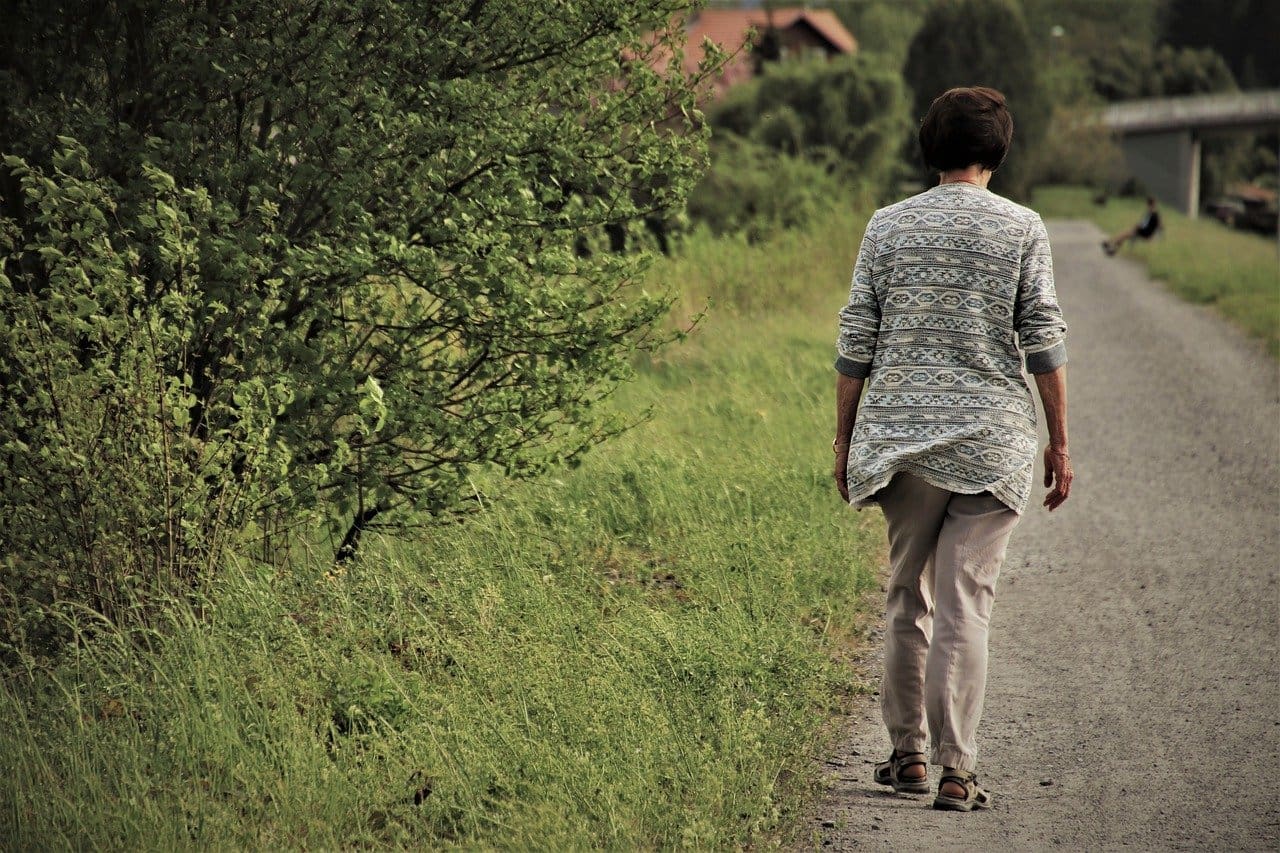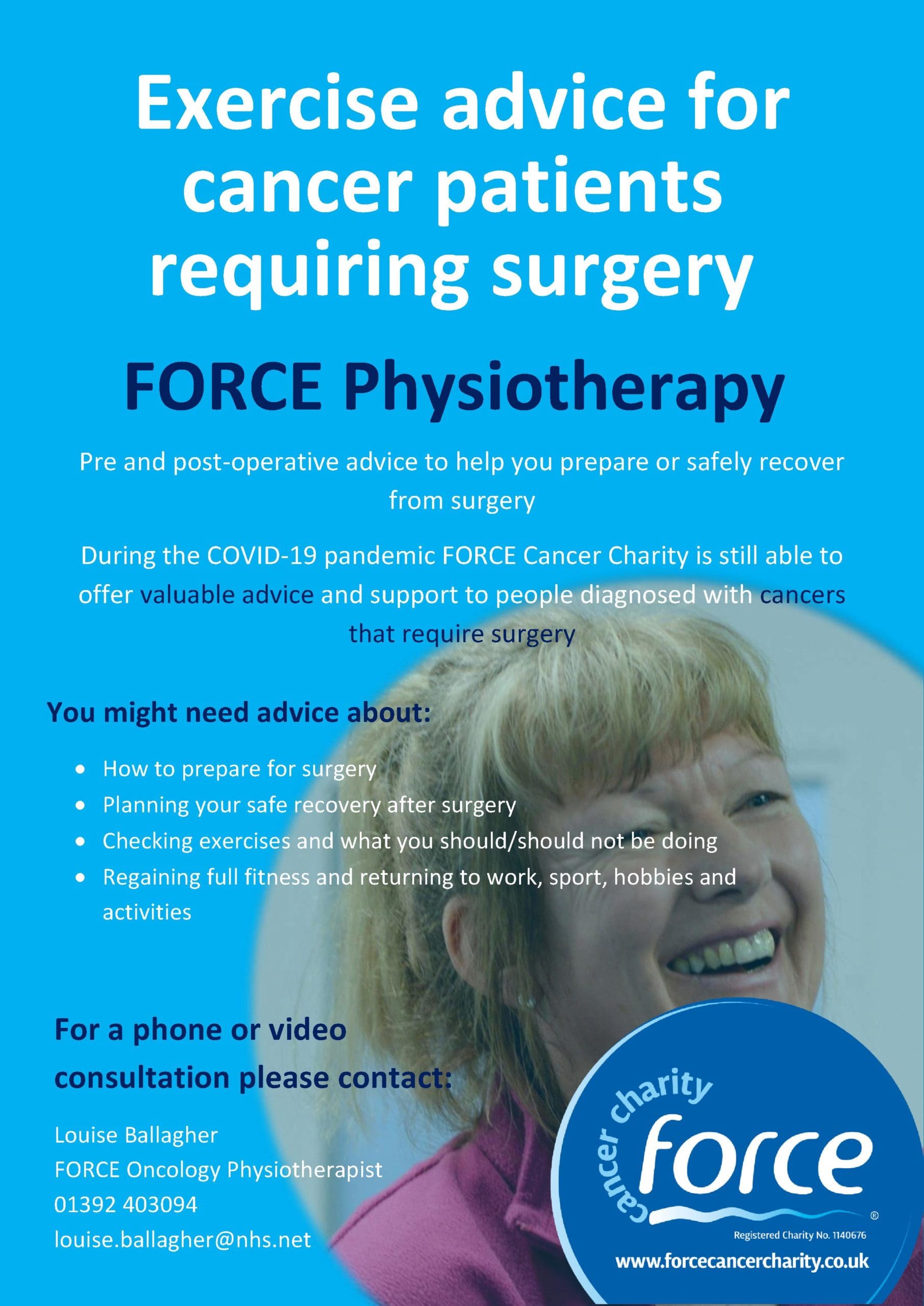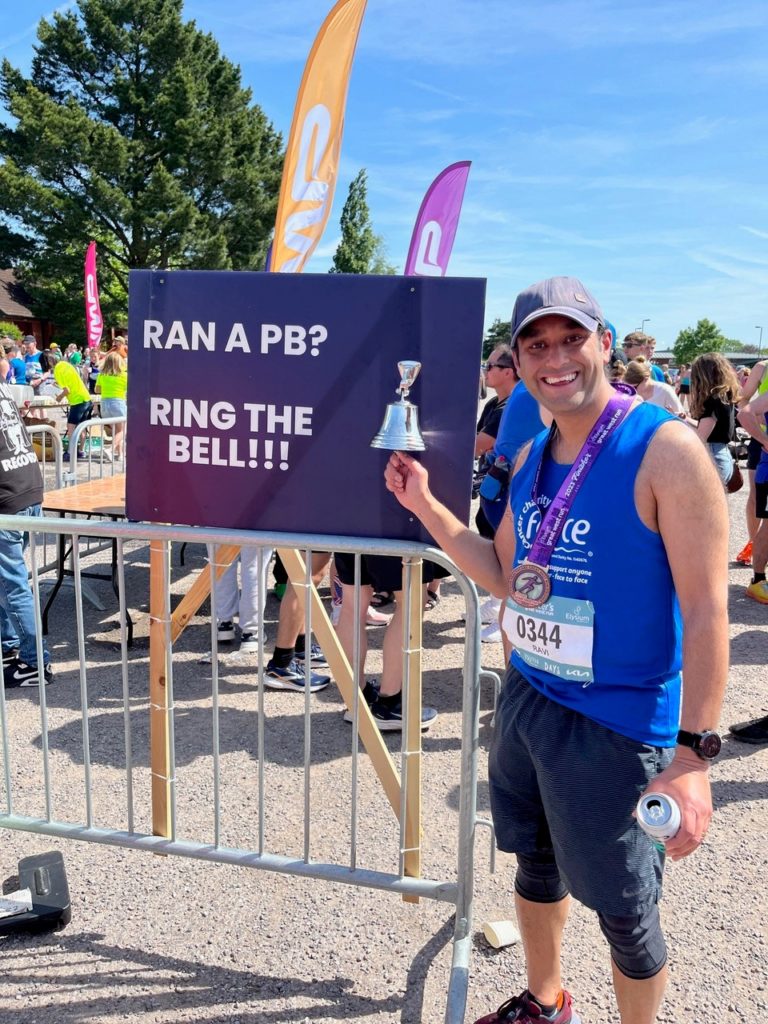Exercise so important ahead of cancer surgery

In this unprecedented time of COVID-19 with social distancing and isolation, a cancer diagnosis and the prospect of surgery or other treatment can be more worrying than ever.
There has never been a more important time to look after your health and wellbeing than after a cancer diagnosis.
Keeping yourself active – even in isolation- is a big part of that.
The importance of preparation for cancer treatment known as prehab and active recovery programmes are now recognised by healthcare providers around the world and are at the forefront of the UK National Cancer strategy.
Research shows that patients who undergo prehab should have improved outcomes, including better survival rates, greater tolerance to treatment, reduced post-operative complications and less time spent in hospital.
A leading cancer policy-maker said: “You wouldn’t run a marathon without undertaking any training and prehabilitation aims to optimise a person’s health and wellbeing to help maximise their resilience to treatment throughout their journey.
Benefit
“Prehabilitation should be implemented as early in the patient pathway as is possible, ideally soon after diagnosis, and as well in advance of treatment as possible for maximum benefit.”
Many of the secondary symptoms of cancer include fatigue, low mood and feelings of anxiety.
Exercise positively contributes to the reduction of these symptoms with the overall aim of improving your quality of life and aiding faster recovery.
FORCE is actively involved in offering prehab. Our specialist oncology physiotherapist Louise Ballagher has strengthened our links with the Royal Devon & Exeter Hospital, particularly on how to refer people into our service.
Personal
While our support centres are temporarily closed, she is offering phone or video consultations to discuss personal exercise programmes in more detail.
“We are constantly reviewing extra opportunities to find more diverse ways to encourage people to get active,” said Louise.
“Exercise can help counteract the adverse effects of cancer and its treatment at any stage in the cancer pathway.
“Evidence suggests that following an exercise programme before treatment leads to increased cardiorespiratory fitness, fewer post-operative complications and less time spent in hospital.”
If you are wondering how you are going to keep active while confined to home, here are a few suggestions from Louise:
Walking
- Walking can have such a positive effect on your mood, health and wellbeing.
- If your condition permits you to have daily social distanced walks, take them!
- Take more strolls around the garden, march on the spot, use a pedometer or app on your phone, or use the stairs for exercise
- Setting a target will give you an incentive and also give you a sense of achievement. You can download your 12-week activity chart here
Workouts at home
- There are a whole host of workouts to download on to your TV or laptop, whether it’s yoga or Pilates or a more challenging cardio session. I recommend you watch the session first to check it suits your requirements and level of fitness.
- Homemade gym – circuit training can provide a great, all-body workout combining cardio work with resistance/weight training. Homemade weights can be made from filled squash, water or milk bottles or bags of sugar or sand.
The NHS has uploaded some 10-minute workout sessions for you to try along with other good information and exercise ideas for you to do at home.
- Try nhs.uk/live-well/exercise/gym-free-workouts/ for gym- free exercises
- Go to nhs.uk/live-well/exercise/ for general advice
Exergames
- Video games are a great way to move, exercise, have fun and be interactive with family. Whether you are playing a virtual game of tennis, ten pin bowling or dancing, it’s a great way to stay active at home.
Fitness challenges
- Why not take this opportunity to set a fitness challenge you can complete at home?
Please check in with your healthcare team before undertaking any kind of new exercise regime.










